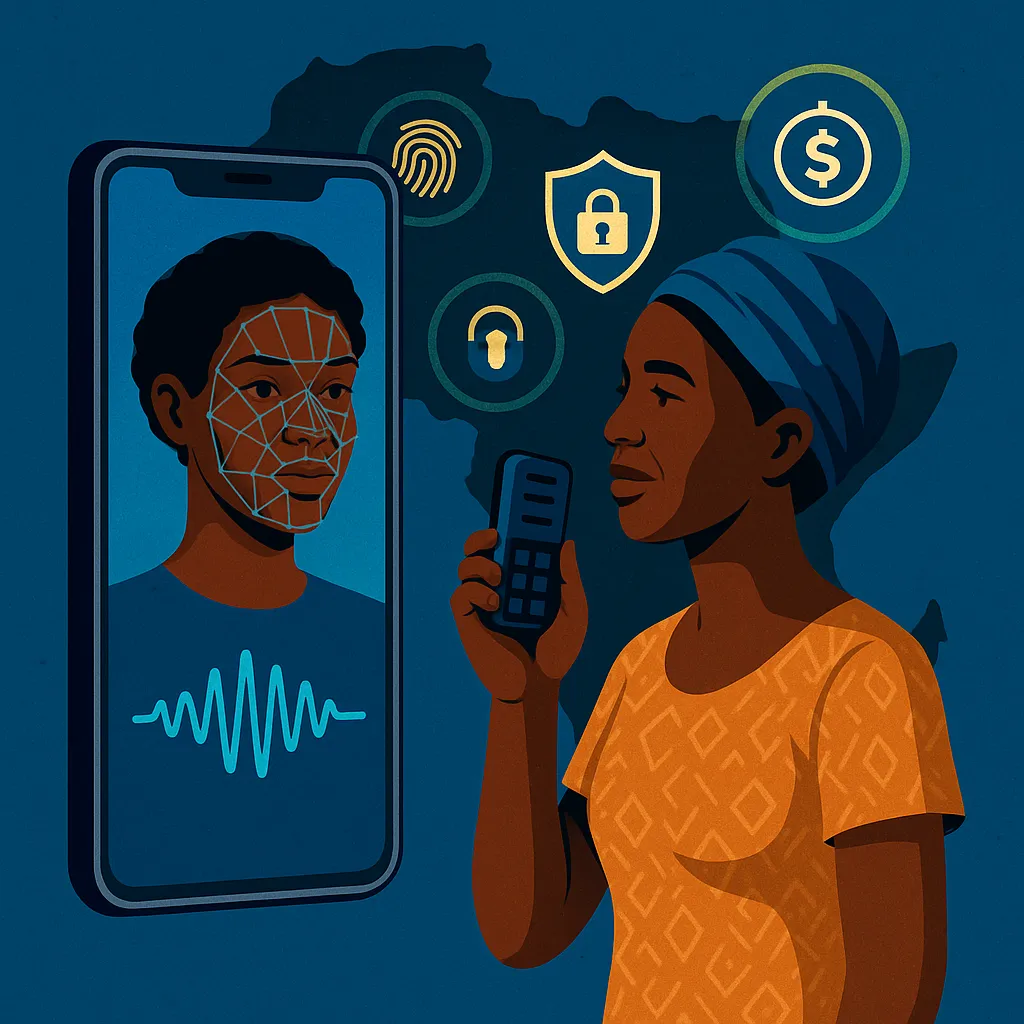Answering Your Questions: Everything You Wanted to Know About KYC, Voice 2FA, and Revenue Intelligence
After countless insightful meetings with partners, fintechs, and digital banks, one thing became clear — there are a lot of great questions around how Authenticalls works, and how our solutions can help improve KYC, AML compliance, and financial verification across Africa.
So we’ve dedicated this page to answering the most frequently asked questions — from biometric onboarding to voice-based authentication and Revenue Intelligence.
How does biometric KYC work?
Biometric KYC verifies identity using a user's face, voice, or fingerprint. Authenticalls uses facial recognition and voice matching to confirm the user's identity in real time, ensuring compliance and reducing fraud.
Can voice KYC work on feature phones?
Yes. Voice KYC from Authenticalls works over regular telecom calls, making it accessible even on low-end feature phones without the need for internet or a smartphone.
Is Authenticalls compliant with KYC and AML regulations?
Yes. Authenticalls is built to support compliance with major KYC and AML regulations, offering audit-friendly verification logs and secure biometric data handling.
What is Voice 2FA and how is it used?
Voice 2FA is a type of two-factor authentication that uses a person's voice as a biometric factor. It can confirm identity through voice match, spoken code verification, and call-based device possession checks.
What are the benefits of revenue intelligence?
Revenue Intelligence helps lenders reduce risk by providing verified, programmatic income data from users — replacing unreliable self-declared financial information.
Why is revenue intelligence important in lending?
It enables more accurate credit scoring, fraud prevention, and faster approvals by giving lenders access to verified income data before issuing a loan.
What types of companies use Authenticalls?
Fintechs, digital banks, microbanks, mobile money operators, telcos, and identity providers use Authenticalls to enhance onboarding, reduce fraud, and comply with regulations.
Do users need to install an app to use Authenticalls?
No. Authenticalls is designed to work via telecom call or mobile browser, eliminating the need for any app downloads.
Is voice data stored securely?
Yes. All voice and biometric data is encrypted and stored in compliance with data protection and privacy laws, including GDPR-like standards.
Can I use Authenticalls for onboarding in rural areas?
Absolutely. The solution works in low-bandwidth environments and supports telecom-based verification for areas without strong internet access.
What makes Authenticalls suitable for African markets?
It’s optimized for mobile-first environments, works without apps, supports voice-based verification, and is tailored to regulatory and infrastructure realities across Africa.
How fast can a user be verified with Authenticalls?
Users can typically be verified in under 30 seconds using biometric or voice methods, significantly speeding up KYC and onboarding flows.
Does voice KYC require a live agent?
No. Authenticalls provides automated voice KYC that records and matches the voice without any need for human intervention.
Can Authenticalls be integrated via API?
Yes. The platform is fully API-driven and can be integrated into any onboarding or authentication workflow.
What languages does voice KYC support?
Voice KYC is language-independent, focusing on voiceprint characteristics, so it can verify users regardless of the language spoken.
How does Authenticalls detect fraud?
It uses behavioral analysis, biometric mismatch detection, and telecom data checks to flag suspicious or synthetic identities in real time.
Can Authenticalls help with SIM-swap fraud?
Yes. By verifying device possession through voice calls and biometric matching, Authenticalls can detect and block SIM swap attempts.
Is voice verification more secure than SMS OTP?
Yes. Voice verification adds a biometric factor, making it harder to intercept or spoof compared to traditional SMS one-time passwords.
Does Authenticalls work with existing onboarding systems?
Yes. Authenticalls is built to integrate seamlessly with CRMs, onboarding portals, and identity verification stacks via API.
What is liveness detection in biometric KYC?
Liveness detection ensures that the user is physically present during verification — preventing spoofing using photos, videos, or recorded voices.
Do you provide an SDK?
Yes, Authenticalls provides an SDK for integration. We currently support React Native for easy mobile deployment across iOS and Android platforms.
Why is it important to support users without internet access?
In many rural or underserved areas, internet is only available at home, and users often lose connectivity when outside. In these cases, smartphones effectively function as feature phones. Banks and fintechs must verify and serve users without active internet access — and Authenticalls enables that through telecom-based voice KYC and 2FA.
Can I use Authenticalls Revenue Intelligence as a standalone product?
Absolutely. Revenue Intelligence can be deployed independently of our biometric KYC or voice 2FA solutions. However, using them together as an integrated stack is more cost-efficient and improves overall onboarding and verification accuracy.
Is Authenticalls affordable for the African market?
Absolutely. We built Authenticalls with the African market in mind, backed by 20 years of experience and presence on the continent through other telecom and identity products. We’re typically at least twice as affordable as the average market price — but what truly sets us apart is not just cost, but our reliability and efficiency in a competitive pricing model.
How does voice authentication work in Authenticalls?
Voice authentication works by capturing and securely storing a user’s unique voiceprint. During authentication, the user is asked to read a code displayed or sent by the system. We then match both the user’s voice characteristics and the correctness of the spoken code. This dual-layer check helps prevent unauthorized access, including from voice recordings or spoofing attempts.


